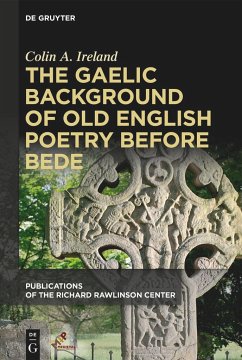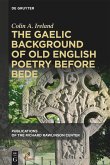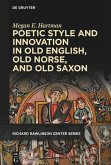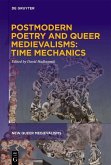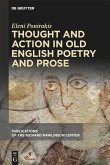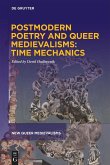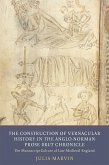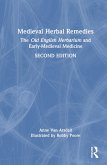Seventh-century Gaelic law-tracts delineate professional poets (filid) who earned high social status through formal training. These poets cooperated with the Church to create an innovative bilingual intellectual culture in Old Gaelic and Latin. Bede described Anglo-Saxon students who availed themselves of free education in Ireland at this culturally dynamic time. Gaelic scholars called sapientes ("wise ones") produced texts in Old Gaelic and Latin that demonstrate how Anglo-Saxon students were influenced by contact with Gaelic ecclesiastical and secular scholarship. Seventh-century Northumbria was ruled for over 50 years by Gaelic-speaking kings who could access Gaelic traditions. Gaelic literary traditions provide the closest analogues for Bede's description of Cædmon's production of Old English poetry. This ground-breaking study displays the transformations created by the growth of vernacular literatures and bilingual intellectual cultures. Gaelic missionaries and educational opportunities helped shape the Northumbrian "Golden Age", its manuscripts, hagiography, and writings of Aldhelm and Bede.
"This is an immensely learned book to which it is impossible to do justice even in a lengthy review. [...] With its wealth of reference to early Irish and Hiberno-Latin literature, [it] is a veritable treasure trove for readers in search of the Irish Gaelic background to Old English literature." (Rory McTurk, University of Leeds, in: Dublin Review of Books 147/2, Sept. 2022)
"This capacious and meticulously referenced book is a valuable addition to the ever-growing body of scholarship on the cultural interplay between early Ireland and England. [...] The Gaelic Background of Old English Poetry before Bede succeeds admirably in its endeavor to "encourage ... a more informed understanding of the nature of insular vernacular literature" (371) and deserves a welcome place among scholarship on the early medieval North Atlantic." (A. Joseph McMullen, Indiana University, in: Speculum 98/4, Oct. 2023, 1262-1263.)
"Many modern scholars will be grateful for the entréeinto the Gaelic learning of that time that Colin Ireland has generously provided in the hallowed tradition of the Irish sapiens and hope that there are many further insights to come." (Barbara Yorke, University of Winchester, in: Peritia 34 (2023), 245-47)
"This capacious and meticulously referenced book is a valuable addition to the ever-growing body of scholarship on the cultural interplay between early Ireland and England. [...] The Gaelic Background of Old English Poetry before Bede succeeds admirably in its endeavor to "encourage ... a more informed understanding of the nature of insular vernacular literature" (371) and deserves a welcome place among scholarship on the early medieval North Atlantic." (A. Joseph McMullen, Indiana University, in: Speculum 98/4, Oct. 2023, 1262-1263.)
"Many modern scholars will be grateful for the entréeinto the Gaelic learning of that time that Colin Ireland has generously provided in the hallowed tradition of the Irish sapiens and hope that there are many further insights to come." (Barbara Yorke, University of Winchester, in: Peritia 34 (2023), 245-47)

